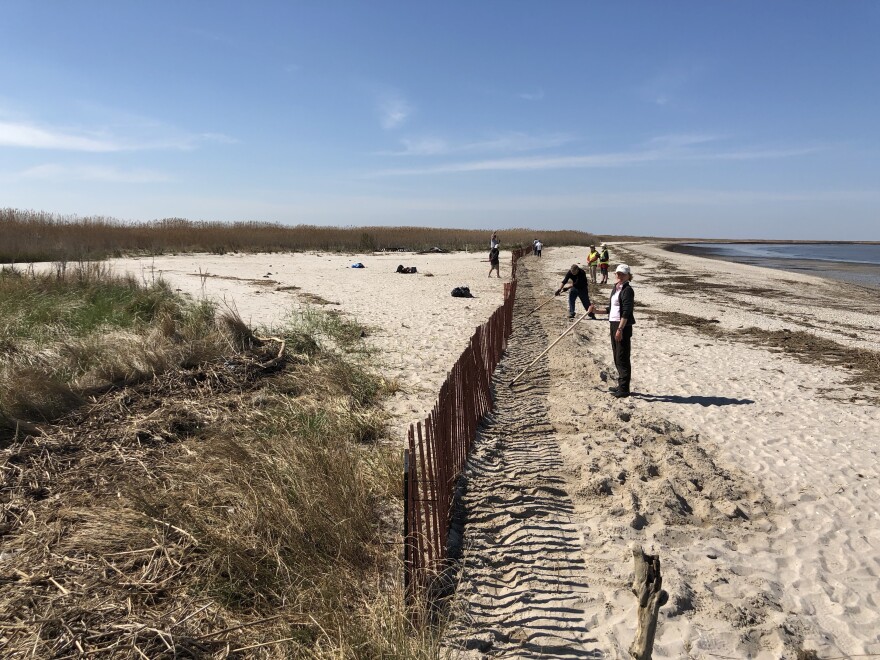A group of horseshoe crab conservationists installed temporary fencing at a Kent County beach Thursday, hoping it will prevent thousands of horseshoe crabs from dying while trying to spawn.
Pickering Beach in Dover is a sanctuary for tens of thousands of spawning horseshoe crabs.
But as they come ashore, many find themselves in an area that slopes away from the beach and into a ditch. Once the tide recedes, they cannot get back into the water and they die right side up in the sun.
A team from Ecological Research and Development Group spent Thursday installing a temporary fence along a 350 foot stretch of the beach. They hammered posts into the ground 6 feet apart from each other, dug a trench for the fencing and dropped it in.
ERDG’s founder and director Glenn Gauvry says the fence will keep horseshoe crabs from crawling too far back on the beach and getting stranded.
“The water will be to their back, they’ll know the water is receding, they’ll be able to feel the incline, they’ll know which direction to go,” Gauvry said. “Even if they were to hunker down along this line, there won’t be as many and they’ll be much easier to help because the distance between here and the water's edge is pretty short.”
The hope, Gauvry said, is the horseshoe crabs will hit the fence and either go backwards to find spawning space, or move left or right.
"There may be a few more stranded upside-down because of hitting the fence," he said.

Intense storms and wave action can also cause horseshoe crabs to flip over and strand upside down. Members of the Pickering Beach community will help monitor the effectiveness of the fence and flip the crabs back over if they see any that need help.
Gauvry said ERDG plans to photograph the area when horseshoe crabs start spawning next month, to see how effective the fencing is.
Delaware’s Division of Fish & Wildlife gave ERDG a permit to put up the fencing, under the condition that the nonprofit raise the money for it. Gauvry said his organization raised $1,000 for the fencing equipment.
They'll remove the fence June 30, when the state permit for it expires and horseshoe crabs have stopped spawning for the year.
Wildlife conservation organization ERDG installed a temporary fence at Pickering Beach to keep horseshoe crabs from crawling too far back and stranding. https://t.co/uKMIewnfEq pic.twitter.com/lXl1uTLB40 — Katie Peikes (@katiepeikes) April 26, 2018





